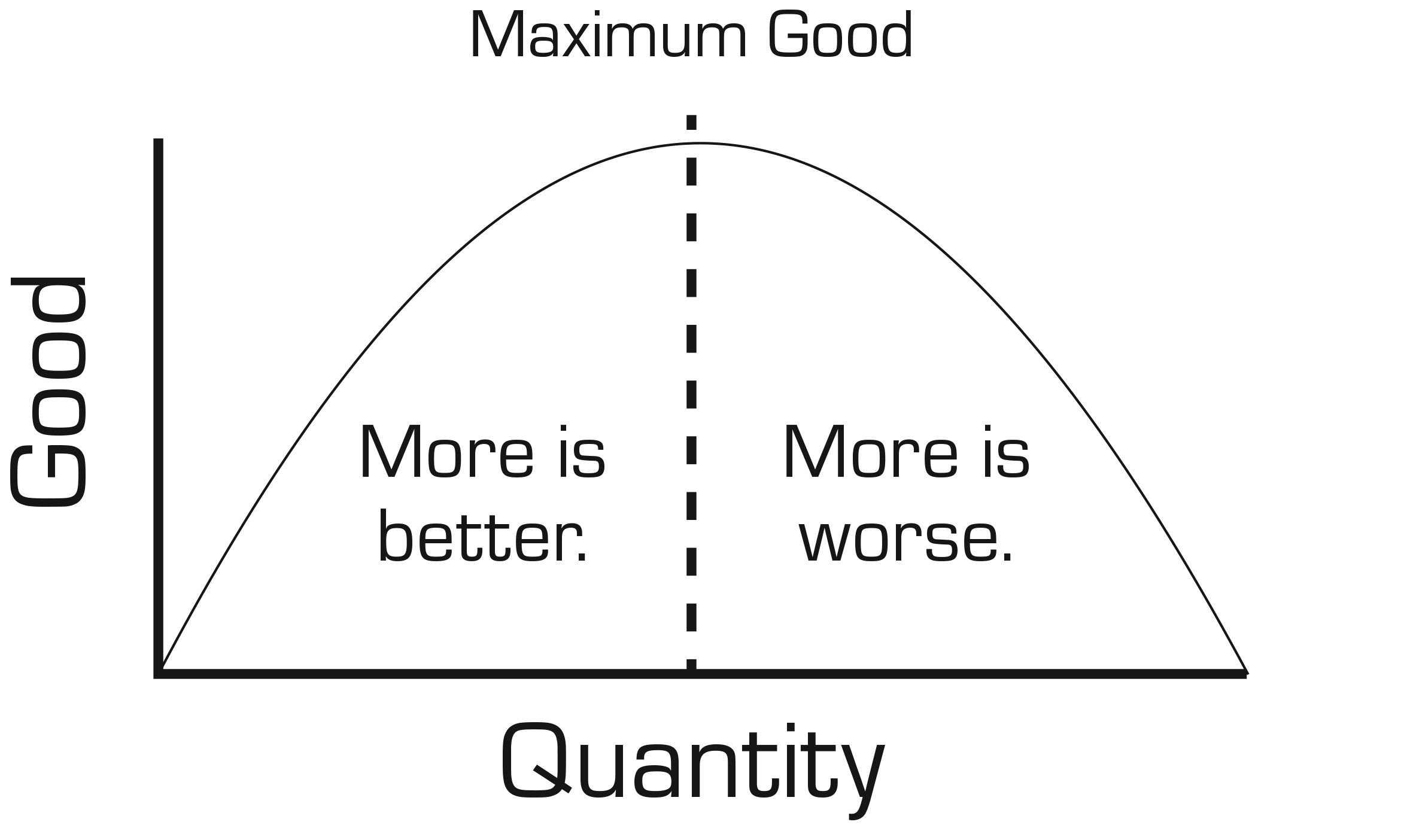This is the second in a series that asks the question, How much money is enough? Click here for part one.
Last post we looked at the “Inverted-U Graph” and money. The point of the graph is, too much of a good thing is a bad thing. There’s a relationship between the amount of good we get out of life, and the quantity of the good. The graph shows that past a certain point, more is worse, not better.

The question was, what about money? How much money is enough? Is there a point where more money is worse, not better?
My answer was, it depends on the reason we’re making money and spending money. Last post surveyed spending money. This post will look at making money.
Making Money, Making a Difference
In a free and moral economy, making money is making a difference. The only way to make money is to create value, then trade it for dollars. We must create a meaningful impact for a client and/or an employer in order to get money honestly.
Of course, if the economy isn’t free, and some people are forcing money from others at gunpoint, then the whole idea of making a positive difference as we make money falls apart. Voluntary trade is the key.
There’s a moral element here as well. When two parties trade illegal drugs for dollars, that isn’t making a positive difference, even though the trade is voluntary and each party sees themselves as benefiting, because each party is creating a long-term loss along with their short-term gains. What seems good to them in the short term creates addiction and crime and poverty in the long-term. The moral component of the market is designed to prevent long-term losses that disguise themselves as short-term gains.
Another moral factor is honesty. If we sell our used car and fail to tell the future owner that the engine is about to quit, that’s a dishonest transaction. Or if we trick a customer into buying something that isn’t what they thought it was, that’s wrong. The customer wouldn’t make the trade if they knew all the facts, which means one person will benefit at the expense of the other. The free and moral market is all about creating true win-win relationships.
But if we’re providing a valuable product and service that does no long-term harm, and the trade is voluntary, and if the parties are honest, all money-making is value creating. Making money is making a positive difference. The only way to make money is to first make a difference, then trade it for dollars.
That means the extremely rich entrepreneur is a maker, not a taker. They should be celebrated for all the value they’ve been giving the world, instead of shamed for their wealth. If they did their work honestly, and traded freely, and acted morally, they’re rich because they’ve created massive value for other people. The wealthy have become wealthy through their giving of their time and talent and treasure to create a better world. They’re the ones who make the biggest differences. We should celebrate their riches as richness for the world they’ve served, instead of resenting them.
How much difference-making is enough?
Which brings up the question, how much positive difference-making is enough? That’s like asking, how much love is enough?
We should be creating as much value as we can, using our resourcefulness and ingenuity and effort to create value in a free and moral society. That means honest money-making is a big part of John Wesley’s rule:
Do all the good you can, by all the means you can, in all the ways you can, in all the places you can, at all the times you can, to all the people you can, as long as ever you can.
Of course, there are limits to what we can do without burning ourselves out. I suspect that’s why the Hebrews instituted a six-day limit on work. People who see their work as making a difference can get so caught up in it that they neglect vital rest and balance. So the command from THE LORD through Moses was, “Six days shall you labor and do all your work.”1
When it comes to making money honestly, the only limit is our physical capacity and creativity. Which means we should be massively ambitious to work. The only way to get to the bad side of the Inverted-U is to burn ourselves out by working seven days a week, 24/7.
1Exodus 20:9, NIV

